Lunch with Michel Gondry
At Antico Caffè Spinnato Via Principe di Belmonte 111 Palermo
Conversation with Andrea Inzerillo Photography Roberto Boccaccino
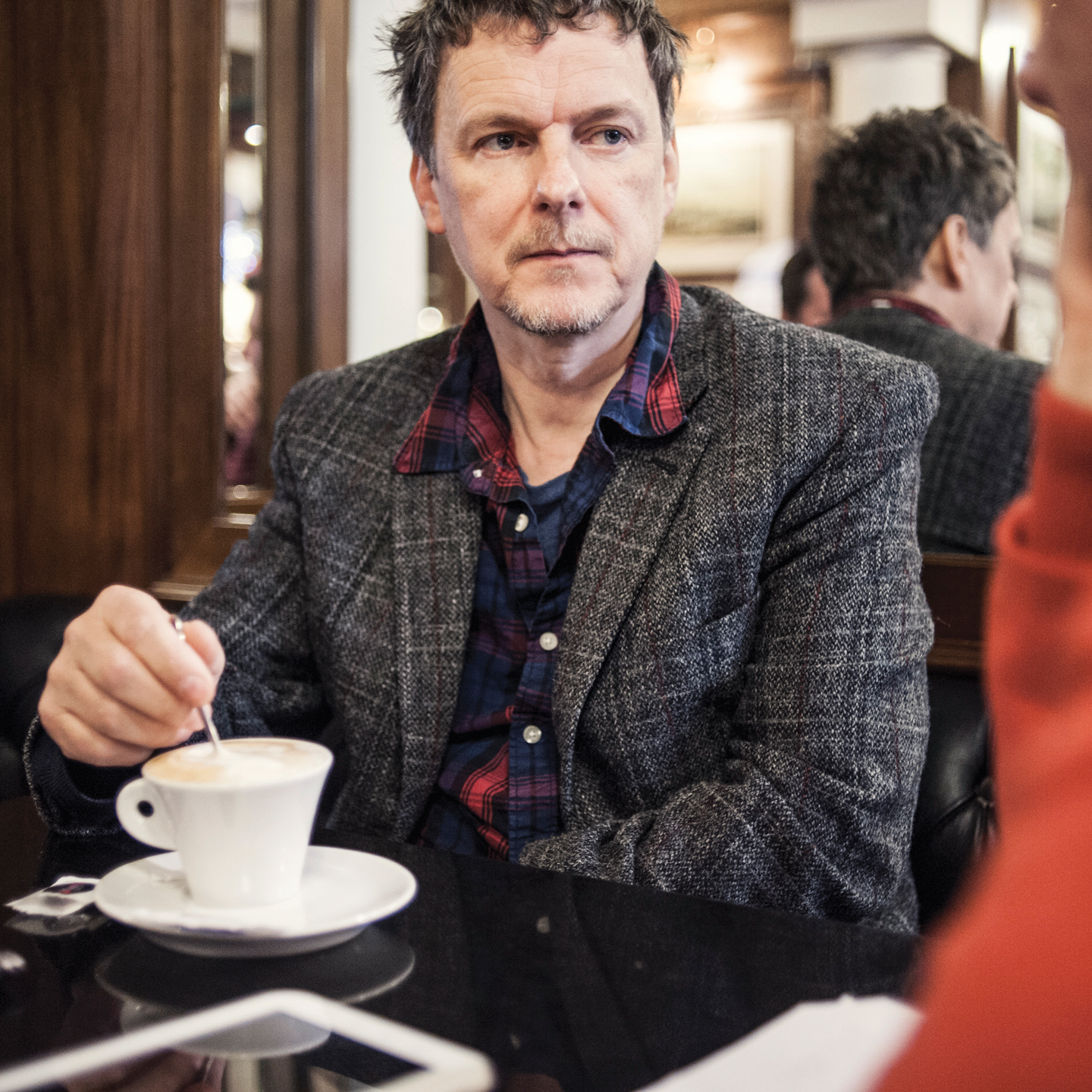
-
MGWhich langauge shall we talk in?
-
AIIn French I think, if that’s ok?
-
MGIn French, ok.
-
EBMichel, would you like something to eat?
-
AIYes, the idea is just to have a relaxed conversation.
-
MGCan I have a cappuccino as well?
-
AII think we could start getting to know you by beginning at the end. You are spending the next few weeks on a busy tour to present the preview of your latest film, Is the Man who is Tall Happy?, with the philosopher Noam Chomsky. The film will be released in France at the end of April. Why Chomsky? Have you known him for a long time? Why did you decide to make this film, which is so much shorter than many of your others? And may I say, I really liked it.
-
MGThank you.
-
AIThere was an article in one of Italy’s main newspapers today about the relationship between cinema and philosophy but it focused on philosophers who write about cinema, while you have made a film where a philosopher talks about himself, albeit in a specific way…
-
MGIn my case it is the other way round: a filmmaker talking about philosophy. I do not think that Chomsky would discuss cinema, it is not something that greatly interests him. I was fascinated by his personality, his activism, his criticism of politics and information and above all, his exploration of language and the contribution he has made to linguistics by putting it alongside biology and all the things he has said on this subject. I think he is one of the great thinkers of the 20th century and today. He has a spirit that is very different to French philosophers (especially those who speak about cinema), he has a much more scientific spirit and that is what truly interests me.
-
AIDo you like the French philosophers who talk about cinema?
-
MGSome of them. I like reading or listening to some of them, but I am not a big fan of this slightly abstract form of intellectualisation, I don’t really connect with it. But as I said, I don’t follow them closely. I think that they isolate cinema from the public a little, perhaps they give it more importance than it actually has. What interested me about Chomsky was his reconsideration of science and linguistics from the very basics: the brain’s contact with the external, what we understand, what we comprehend of the external world from our perception, which he calls psychic continuity. These are topics that I feel passionate about and I thought it was a good theme for an animated documentary.
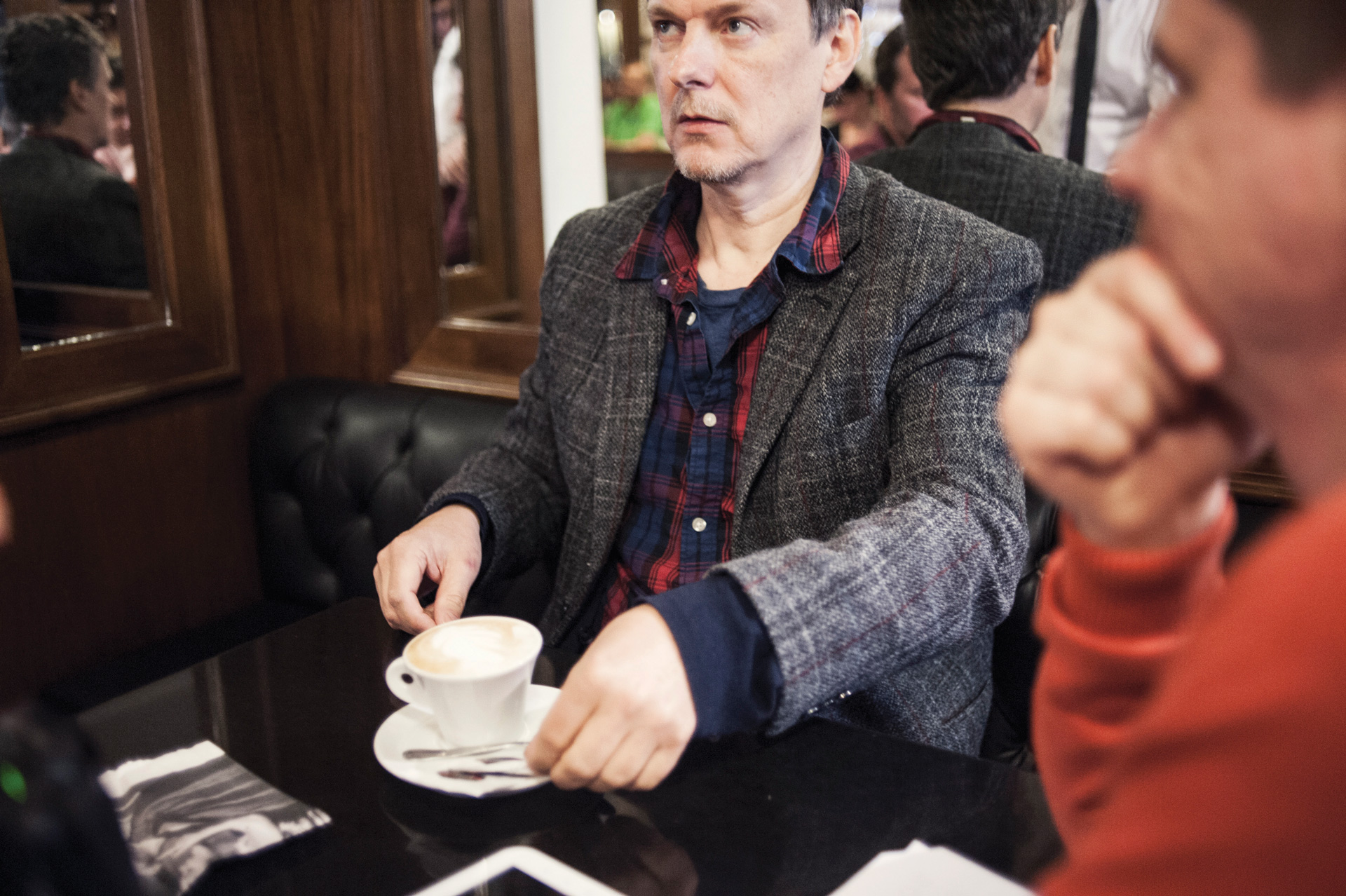
-
EBHis political activism features relatively little in the film.
-
MGThere are already so many projects related to that aspect of him, I was more interested in showing his scientific work, which is certainly famous, but I wanted to show it in a more playful light, mixing my artistic fabrication with his quite meticulous thinking, which is very well-constructed and yet revolutionary at the same time.
-
AIThe theme of memory is very present in your previous films and what is very interesting in this film is how Chomsky moves from the issue of memory to that of language. I feel as though there is a link that connects your films and here merges with the field of language and I thought that this way of examining a philosopher through his voice while simultaneously using animation and the voice of the interviewee was wonderful. Chomsky’s body (and the noise of the camera you use) is his voice here, which is a very interesting idea cinematographically speaking.
-
MGSince he speaks extensively about biology and things that are both mathematical and biological (it is partly this that led him to reexamine issues of language and the brain), I saw the animation as a sort of geometry.
-
The waitress arrives with a plate of panelle
-
MGThese aren’t all for me! Have some… I thought that the animation allowed me to demonstrate this, because there is an organic, biological aspect to drawing techniques, especially abstract animations.
-
AIIt is also the material side, the bricolage of your cinema which explodes in this film, weren’t you afraid of making a film with such a committed philosopher? Especially when it handles such important questions, such as how perception works for example…
-
The crocchè arrive
-
MGThese are for you!
-
AIAnd you don’t often see a philosopher who speaks for an hour and a half not only about their research, but also – and that part is very moving – about his wife, whom he doesn’t want to talk about initially but mentions in the end… did you already know each other prior to this film? Did you know his wife?
-
MGNo, I don’t know her, I’ve seen her but I’ve never met her personally.
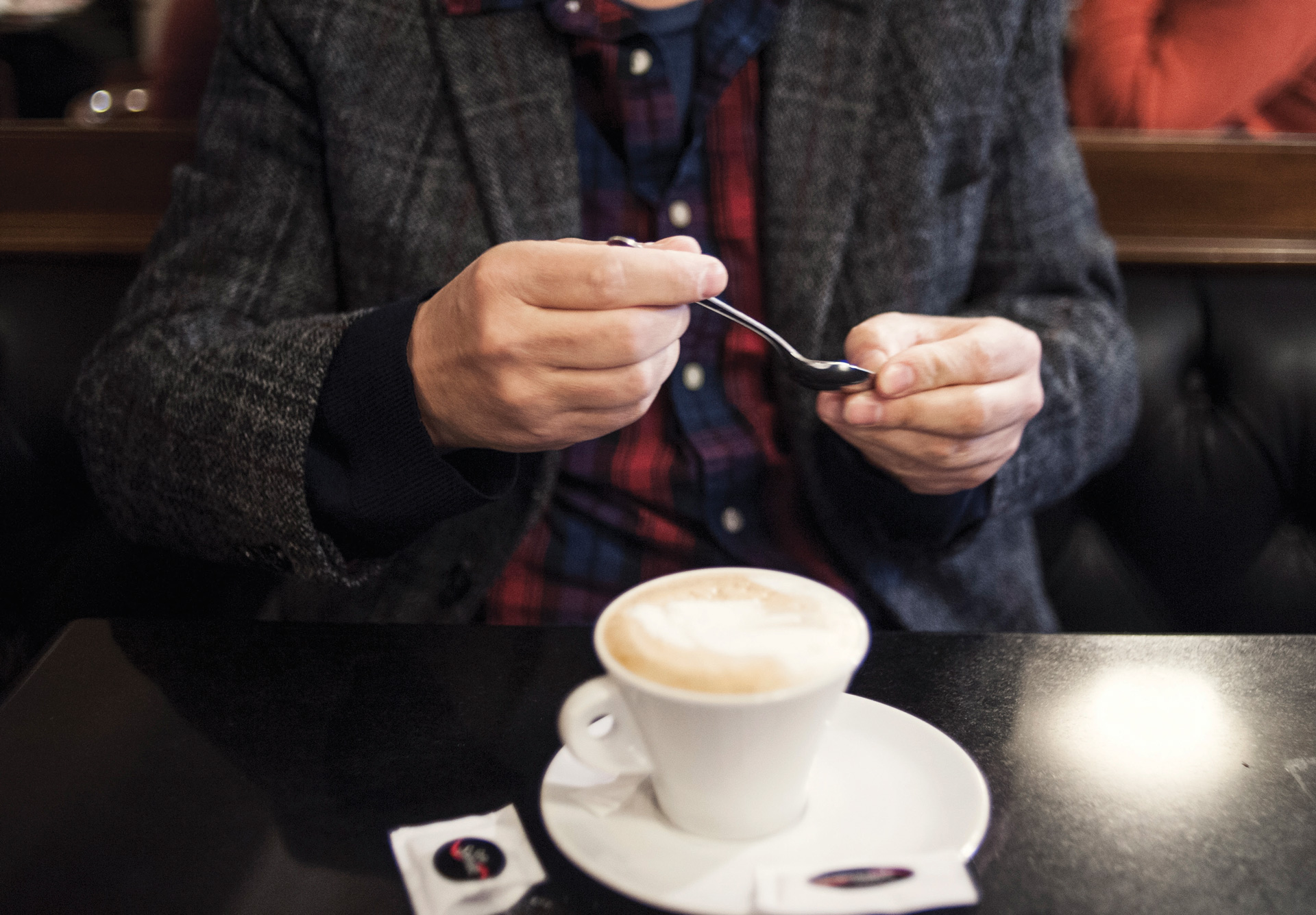
-
EBDid you spend a lot of time growing closer to Chomsky before filming began or was it quite spontaneous?
-
MGI had met him 5 or 6 times before, for half an hour a time. I never dared to ask him to make a film with me because I didn’t know if I had the time or ability. Then I was encouraged to do so and so I asked him.
-
EBThe film was made at the same time as Mood Indigo – The Froth of Days, wasn’t it?
-
MGYes, I was actually finishing three films. It coincided with the end of Green Hornet and overlapped with The We and the I and The Froth of Days.
-
EBAnd how many times did you meet up with Chomsky?
-
MGTwice for an hour and a half both times, with a break, and with six months between the meetings.
-
AIAt his house?
-
MGIn his office.
-
EBTo return to what you mentioned earlier, what kind of relationship does Chomsky have with cinema? Was he intrigued by the fact that a filmmaker was interested in him?
-
MGNot particularly. He was interested in the animation and he was very happy with the result, he was very touched.
-
AIDid he see the film in the cinema?
-
MGYes, we saw a preview of it in a cinema together.
-
He takes the plate of panelle and crocchè
-
MGJust one more and then I’m done.
-
ADThese are Palermo specialities…
-
MGYes, but I can’t eat anymore. Let’s get rid of this plate or I’ll eat the lot.
-
AISpeaking of food, at a certain point in the film, Chomsky recounts how he found his voice because he didn’t like porridge.
-
MGHe means that he was very stubborn, that he wanted to do whatever he liked. I asked him how he established his philosophy and he replied “I’ve always hadit”.And then, but it was a bit of a nod to that since I had asked him for his earliest memory, he told me that.
-
AIIn any case, he was a ten-year old boy who read his father’s PhD thesis; he wasn’t exactly like other children.
-
MGHe must have been very precocious… and his son was reading Einstein’s theories at 12 years old!
-
AIHis children didn’t go to university, or didn’t finish. Are they political activists or anything similar?
-
MGYes, his daughters are. His son does something else but he doesn’t talk about it.
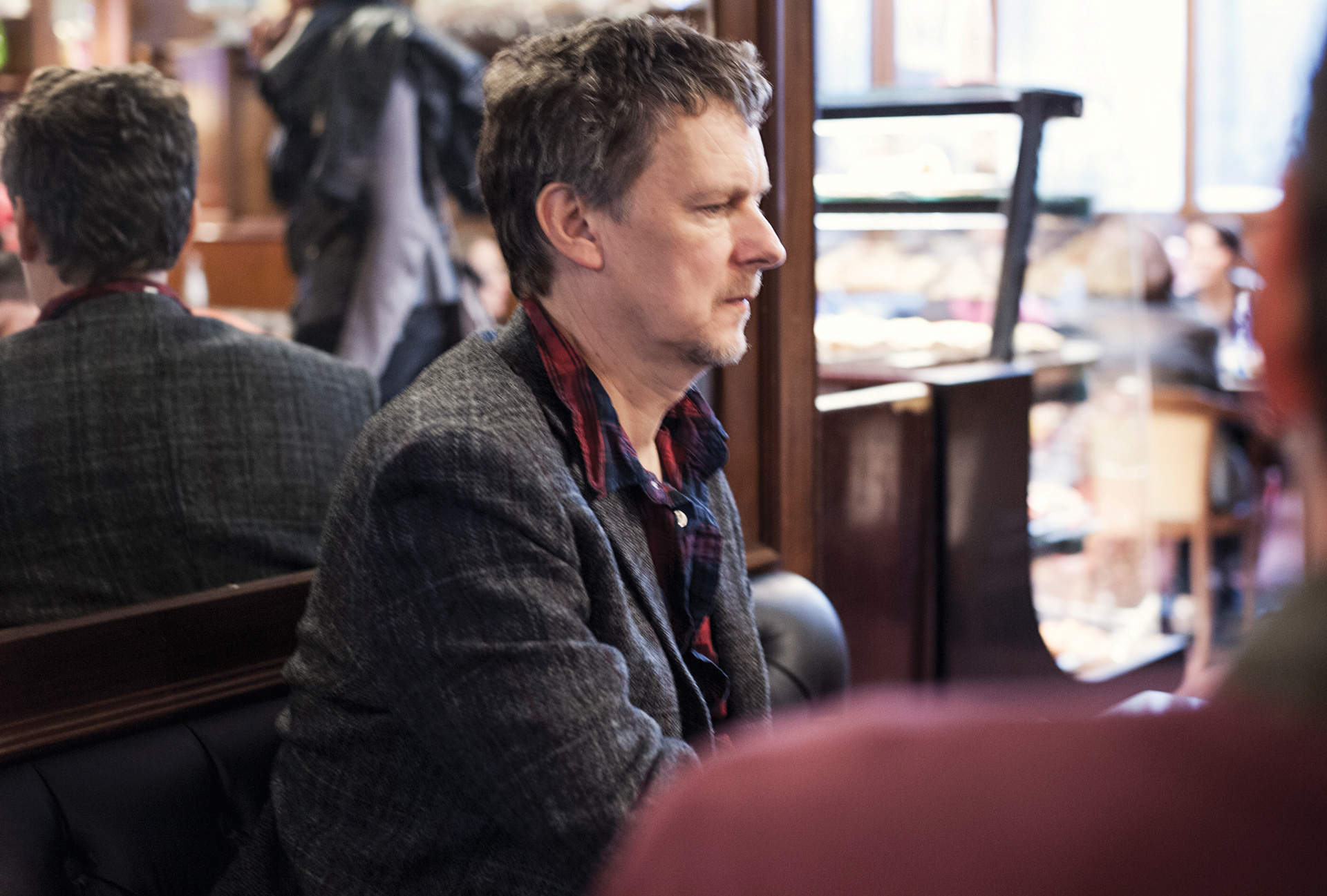
-
AICompared to other films which feature philosophers – Žižek in his Pervert’s Guide to Cinema, Badiou in Film socialisme by Godard, Rancière doesn’t appear in any films I don’t think but in some artistic installations and we have an extraordinary Abécédaire from Deleuze… –, I think that yours could be a history of philosophy in cinema, it could be part of an almost encyclopaedic project by filmmakers. You are a French filmmaker who has worked extensively in the United States. What is your relationship with American cinema and French cinema?
-
MGI don’t really know. American cinema is very open to foreign directors, it always has been. I don’t think I am an exception. I think that the real difference exists between commercial films (films with larger budgets, blockbusters) and more independent films, rather than between one country and another. I don’t know, I’ve never really tried to analyse in depth what cinema is, what American cinema is or what French cinema is, it is not something that concerns me or that I feel the need to explore.
-
AIBut you like working with both forms: more independent cinema and also more mainstream cinema.
-
MGWhen it comes to blockbusters, there is a relationship with the audience that interests me, for example, the films that were remade in Be Kind Rewind were all commercial films, otherwise it wouldn’t have worked, it wouldn’t have been clear which films they were trying to remake. And then I was interested in what it meant to make the kind of film that was aimed at a large audience. Of course there are commercial films that I really love; I’ve got nothing against that kind of cinema. The problem today is finding original and entertaining screenplays which appeal to a large audience. I am bored of superheroes though, I wouldn’t make another film about superheroes.
-
EBDoes this toing and froing, returning to France to make films like L’épine dans le cœur respond to a need to show more intimate and personal things, yet also to have a bit more freedom?
-
MGYes, both of those. But then, The We and the I for example, was an American film but it was produced by my company in France and I had complete freedom. It was the same for the film about Chomsky and the film about my aunt. They are things that I don’t necessarily see as films, but testimonials. When it came to my aunt for example, who lived an extraordinary life, I wanted to transmit what she had told me, her relentless tales when I went to visit her, I wanted to leave behind a trace of that.
What interested me about Chomsky was his reconsideration of science and linguistics from the very basics: the brain’s contact with the external, what we understand, what we comprehend of the external world from our perception, which he calls psychic continuity. These are topics that I feel passionate about and I thought it was a good theme for an animated documentary.
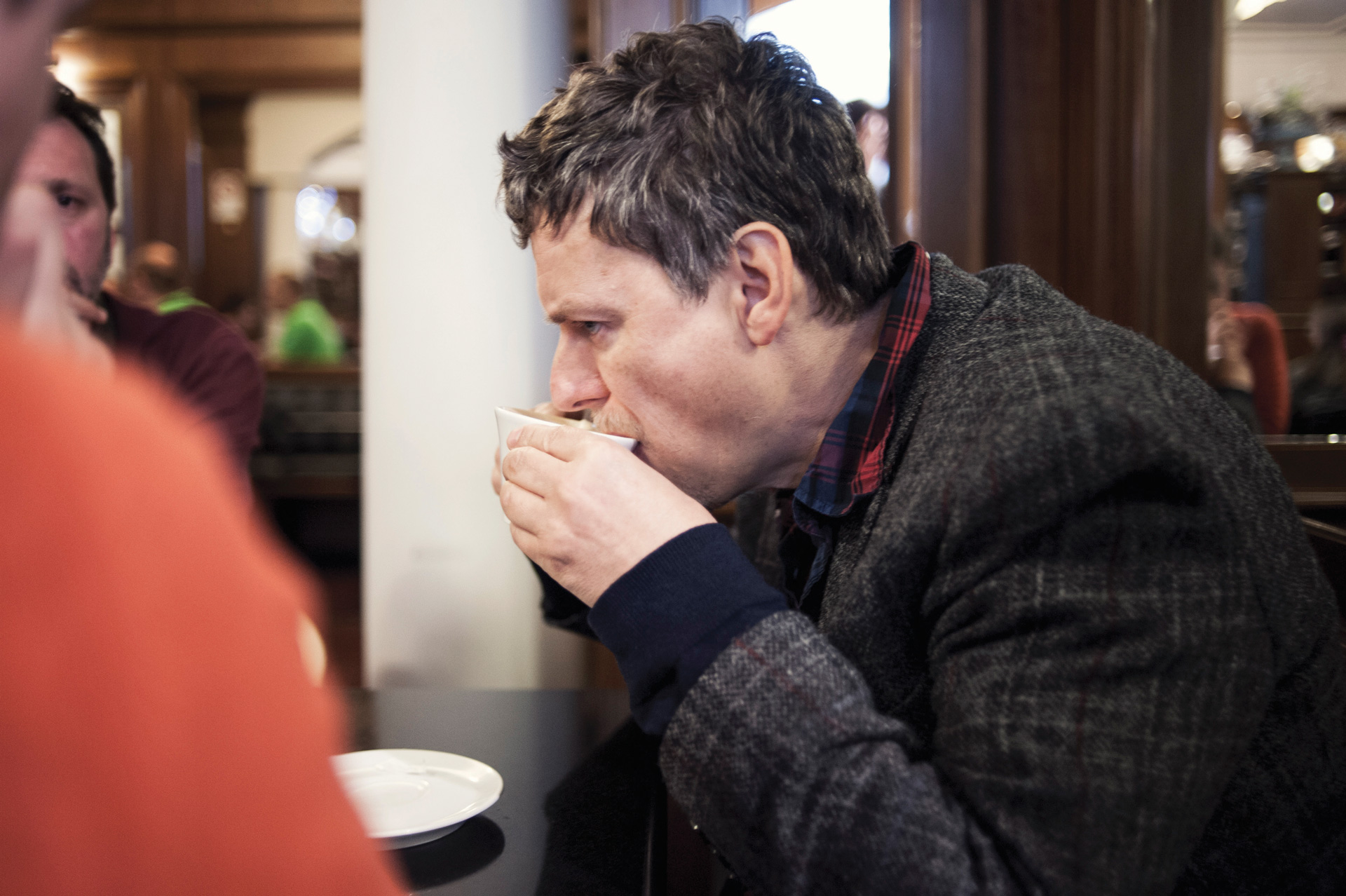
-
EBDoes your aunt, and your family in general, watch your films?
-
MGYes, but my aunt more than all the others, although her eyesight is terrible, her vision is at perhaps less than 10% yet she appreciates them more than anybody else, she sits very close to the screen and she has followed me from the beginning of my career.
-
AILast question: in the film you ask Chomsky what makes him happy. What makes you happy Michel Gondry?
-
MGRight now it’s difficult to answer, I don’t feel very happy at the minute, but… doing things with my son, walking in the forest, having the chance to meet interesting people, sometimes making films – even though it is often very tiring –, meeting people who are interested in my work and who ask questions.
-
AIAnd do you like touring to present your films, with these hectic schedules?
-
MGSo-so… I’m a bit tired and I’ve had enough of airports.